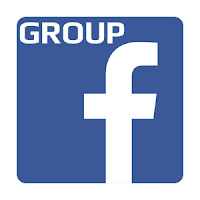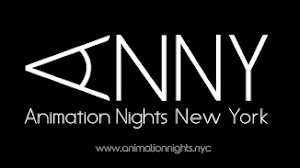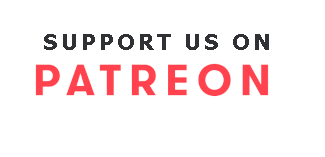The Lessons of 'Home'- Why Diversity in Animation Matters.
DreamWorks Animation's run of films without "Dragon" in their title underperforming seems to have come to an end, with Home cruising past $100 million on the US Box-office alone. Regardless of the film's quality (confession: I haven't seen it yet) Home has certainly generated some interesting conversation. Analysis of the US audience for the film has revealed the film has been performing particularly well within the African-American and Hispanic communities and has also appealed particularly to a female audience. As to why, the answer's quite simple- Home features the first black female protagonist not only in a DWA film, but in a US made CG animation overall.
In their history to date, DreamWorks has only had one previous female lead (in Monsters Versus Aliens, but even that was more of an ensemble). A fair number of their remaining leads are non-human to be fair- but those which are are virtually all white and male. It took Pixar until 2012's Brave to centre on a female lead, but at least this year's Inside Out will double their total.
Considering John Lasseter's love for Studio Ghibli, you'd think it would happen way sooner. The Japanese studio has an abundance of strong female leads, from Nausicaa onwards (technically that's not a Ghibli film but it's usually classified as one). Disney too fairs better- it's fairytale focus saw female leads from the off. They do better in the non-white stakes too, with Mulan, Aladdin, Pocahontas and more recently Princess and The Frog. Their portrayals may have other issues- but they're still ahead of their rivals by simply existing. Big Hero 6 was pretty great in this regard- it featured a half-Japanese lead and the titular gang are a racially diverse bunch.
Why is it so important? Doesn't everyone deserve to feel represented in the media? Despite what some people may try to argue, this isn't a political issue. There's nothing political about believing that maybe just more than straight white males should get a chance to see themselves on screen. I've got nothing against them (indeed, I am one) but society should be reflected in its media. This is nothing more than basic human empathy. If you looked at TV, books and movies and never saw another person like you, how would you feel? This isn't an issue unique to animation- of course, live-action TV and movies are as bad or worse, but the animation industry has the chance to lead the charge.
Part of the issue is that the majority of people writing, directing and producing animation are... you guessed it, white and male. Until more diverse voices- more women, people of colour and LGBT people start to break through, it's going continue to be this way. And until then, it's their responsibility to make sure they represent a wider part of their audience. Nobody is saying you can identify only with characters only like yourself... it's just a question of readdressing the imbalance somewhat. Because right now, it's just not good enough.
If there's one thing that Hollywood suits understand it's money. Great swathes of their audience (hell, more than half) are under-represented. That can result in a significant amount of money if you can turn this around. I'm convinced a serious chunk of Frozen's success is its focus on a relationship between women (with the usual romance relegated to subplot). One of these days media producers need to wake up to the fact that they're leaving some serious money on the table by only serving a fraction of their audience. Hopefully, Home is just the beginning.
In their history to date, DreamWorks has only had one previous female lead (in Monsters Versus Aliens, but even that was more of an ensemble). A fair number of their remaining leads are non-human to be fair- but those which are are virtually all white and male. It took Pixar until 2012's Brave to centre on a female lead, but at least this year's Inside Out will double their total.
Considering John Lasseter's love for Studio Ghibli, you'd think it would happen way sooner. The Japanese studio has an abundance of strong female leads, from Nausicaa onwards (technically that's not a Ghibli film but it's usually classified as one). Disney too fairs better- it's fairytale focus saw female leads from the off. They do better in the non-white stakes too, with Mulan, Aladdin, Pocahontas and more recently Princess and The Frog. Their portrayals may have other issues- but they're still ahead of their rivals by simply existing. Big Hero 6 was pretty great in this regard- it featured a half-Japanese lead and the titular gang are a racially diverse bunch.
Why is it so important? Doesn't everyone deserve to feel represented in the media? Despite what some people may try to argue, this isn't a political issue. There's nothing political about believing that maybe just more than straight white males should get a chance to see themselves on screen. I've got nothing against them (indeed, I am one) but society should be reflected in its media. This is nothing more than basic human empathy. If you looked at TV, books and movies and never saw another person like you, how would you feel? This isn't an issue unique to animation- of course, live-action TV and movies are as bad or worse, but the animation industry has the chance to lead the charge.
Part of the issue is that the majority of people writing, directing and producing animation are... you guessed it, white and male. Until more diverse voices- more women, people of colour and LGBT people start to break through, it's going continue to be this way. And until then, it's their responsibility to make sure they represent a wider part of their audience. Nobody is saying you can identify only with characters only like yourself... it's just a question of readdressing the imbalance somewhat. Because right now, it's just not good enough.
If there's one thing that Hollywood suits understand it's money. Great swathes of their audience (hell, more than half) are under-represented. That can result in a significant amount of money if you can turn this around. I'm convinced a serious chunk of Frozen's success is its focus on a relationship between women (with the usual romance relegated to subplot). One of these days media producers need to wake up to the fact that they're leaving some serious money on the table by only serving a fraction of their audience. Hopefully, Home is just the beginning.










%20Courtesy%20of%20Dazzler%20Media.jpg)












